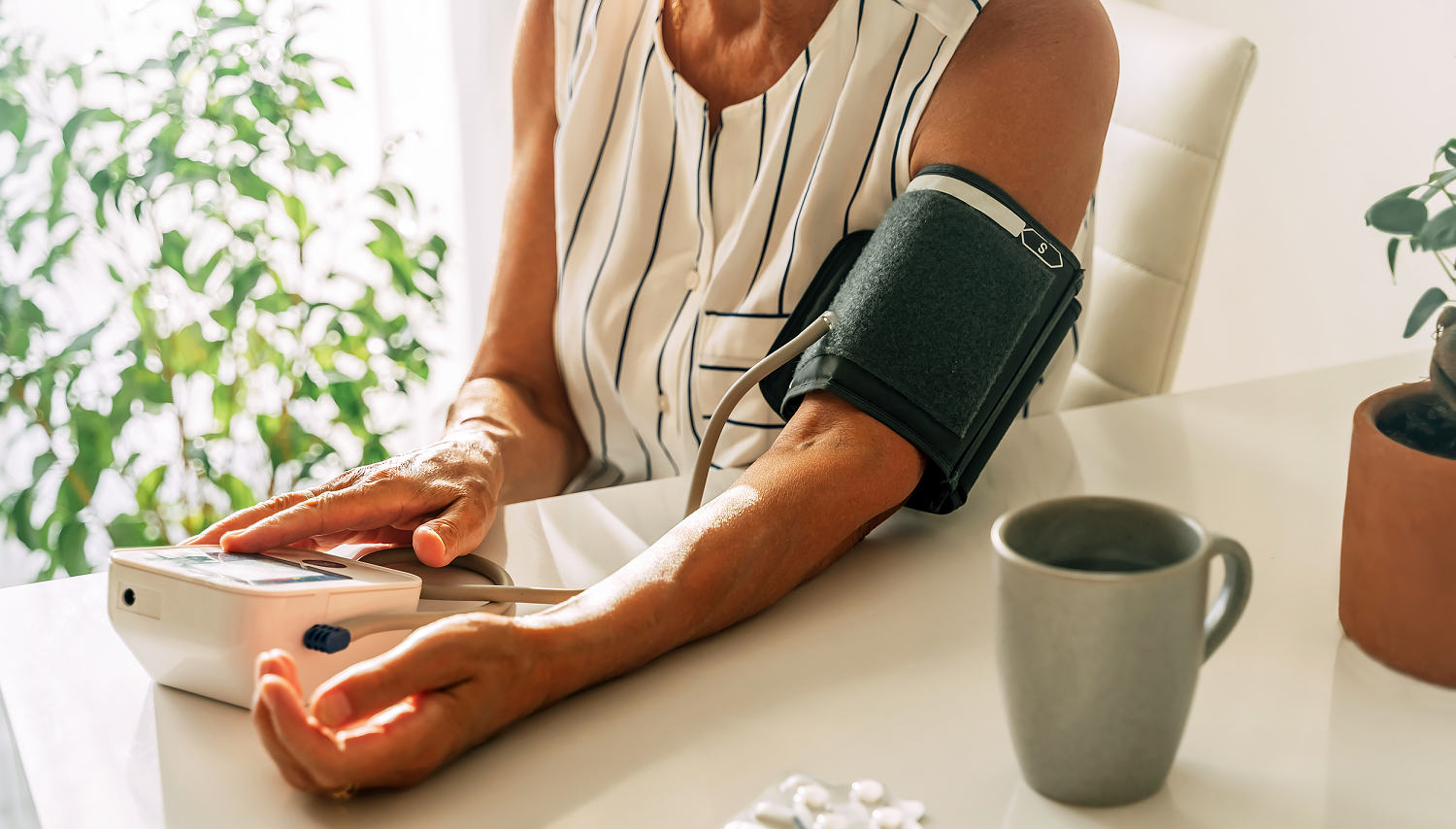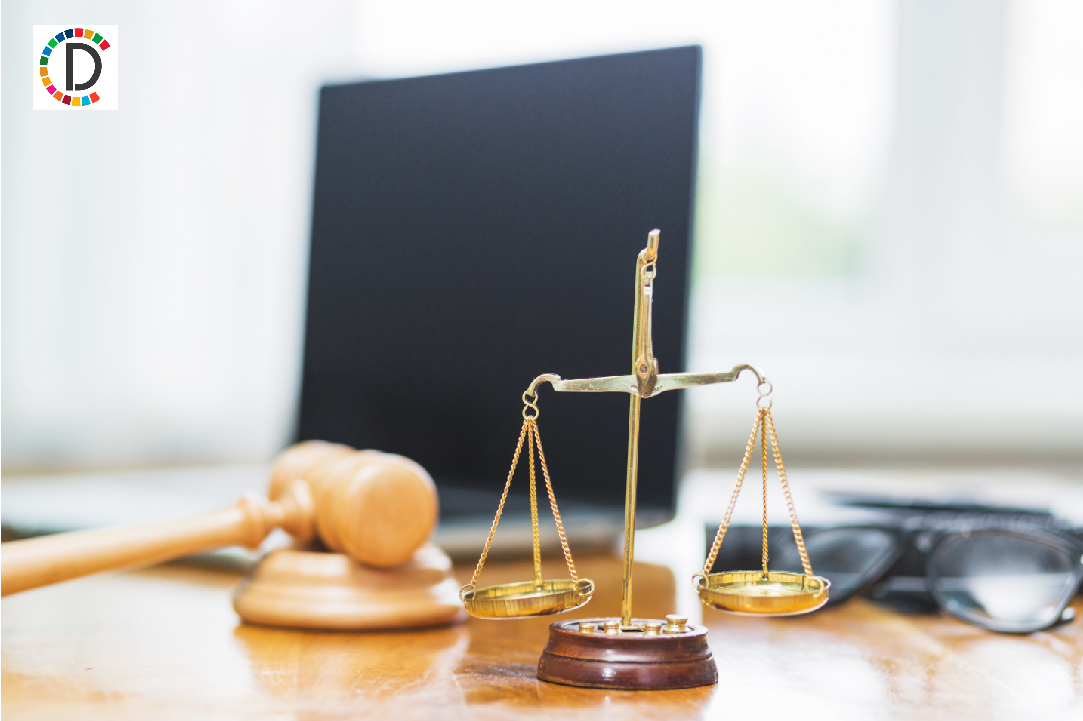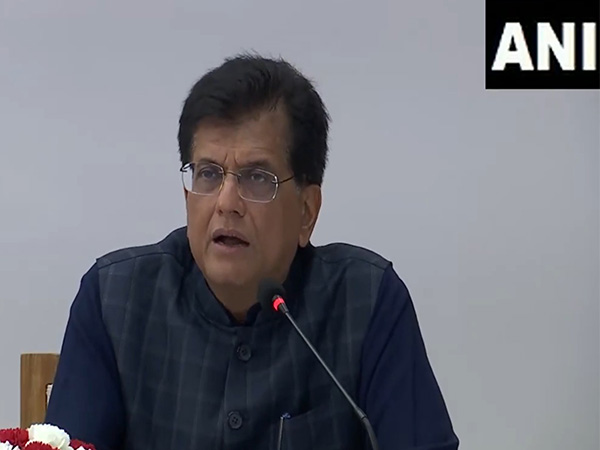Nearly half of adults in the U.S. have high blood pressure.
And if you're among them, you'll want to keep tabs on your blood pressure at home, which can require some precise timing. It's important to get a handle on high blood pressure, also called hypertension, because it can contribute to a long list of serious health conditions if left untreated, NBC News medical contributor Dr. Natalie Azar said during a Feb.

18 TODAY Show segment. Uncontrolled high blood pressure can lead to stroke, heart failure, coronary artery disease, kidney disease and aneurysms, Azar said. But high blood pressure can be completely asymptomatic.
"We often talk about high blood pressure as the 'silent killer,' which I know sounds a little bit strong," Azar said. "But a lot of people — the majority of people, actually — don't know that they have it." Measuring your blood pressure regularly at home can shed some light on this often unseen process in your body.
And, if you start to make changes in your eating habits, exercise patterns or medications, a will help you see just how much your hard work is paying off. Anyone with with known hypertension or should consider using a blood pressure monitor at home, Dr. Luke Laffin, cardiologist and co-director of the Center for Blood Pressure Disorders at the Cleveland Clinic, tells TODAY.
com. For those patients who know they have hypertension, "it’s important to be able to at home in between visits,” Yvonne Commodore-Mensah, Ph.D.
, a cardiovascular nurse epidemiologist and spokesperson for the American Heart Association, told TODAY.com previously. Additionally, anyone whose doctors suspect they might have hypertension based on in-office readings might want to use one, too, Laffin says.
That's because it's not uncommon for readings at home to be different from those in a doctor's office. One reason for the discrepancy could be a phenomenon called "white coat hypertension," which happens when a patient's anxiety in a medical setting temporarily increases their blood pressure reading. For those patients, home monitoring may reveal that their actual blood pressure is totally normal.
The reverse is possible, too, meaning that people may have lower blood pressure readings when in the doctor's office than they do at home. This phenomenon — masked hypertension — makes it harder for doctors to spot high blood pressure when they're only seeing in-office readings. The answer to this question may be different from person to person, and will change as you get your numbers under better control.
At first or when you start a new medication, experts measuring your blood pressure more often, about 12 times a month or three times per week. "When medication changes are made and we need to see the effects, I recommend patients take readings three to five times a week," Laffin says. But, once your blood pressure is improved and you're on a stable regimen, you can ease up on that significantly, Laffin explains.
Some research suggests that taking your blood pressure once every two weeks or even once every three to four weeks "is perfectly fine for the prediction of overall blood pressure control and cardiovascular risk," he says. You can take your readings more often if you want to. But for most people, that will likely just lead to anxiety — not better health.
"We don't want people beholden to checking their blood pressure three, four or five times a day," Laffin says. "That doesn't help anyone," he says, "and it doesn't give us actionable data." Whenever you take your readings, you should measure your blood pressure at least twice, with one minute in between readings.
And you should take care to make sure you’re getting an accurate reading. According to the , that means you should: All of these factors can affect your blood pressure reading. Just having a full bladder, for instance, can raise your blood pressure 10 to 15 points, Laffin says.
On the other hand, after exercise, your blood pressure may be 10-15 points lower, giving you a false sense of reassurance. So, taking all of that into account, the best time to take your blood pressure for most people will be in the morning — more specifically, soon after you wake up and go to the bathroom, but before you have coffee or do any physical activity (like a morning walk). "I recommend checking in the morning before (patients) take medicine," he explains, "because that's typically when blood pressure is the highest.
So if it's controlled there, you should be good throughout the rest of the day." If you're taking your readings twice in a day, Dr. Deborah Levine, an associate professor in the University of Michigan Medical School, told TODAY.
com that it makes sense to get your measurements between 6-10 a.m. and then between 6-10 p.
m., as these are the hours when most folks are waking up and going to bed. Experts and the AHA generally recommend taking your blood pressure at the same time of day every time you take a reading to keep your measurements as consistent as possible.
"But it's all about finding balance," Laffin says. “If you’re checking three to five times a week in the morning, then a couple times a week you can check in the evening as well." Keep in mind that blood pressure tends to follow a predictable 24-hour pattern, with a rise in the morning and a dip midday followed by a less dramatic rise in the evening and low overnight.
Getting a proper reading isn't just about timing, though. It's also crucial to make sure you're using a (it should have an arm cuff, not a wrist or finger monitor) and to take your readings with your body in the proper position. For example, when taking your blood pressure readings, you want to have your legs uncrossed, your feet flat on the floor and your back supported.
So, sitting up on the edge of the bed "is not appropriate," Laffin says. While it may seem a little fussy to keep these little details in mind, "it's all about getting accurate data," Laffin says, which ultimately helps you keep tabs on your heart health..
Health

When is the best time to take your blood pressure? Cardiologists weigh in

If you have hypertension, you should be monitoring your blood pressure at home. Cardiologists explain when to take your readings to make them accurate.















